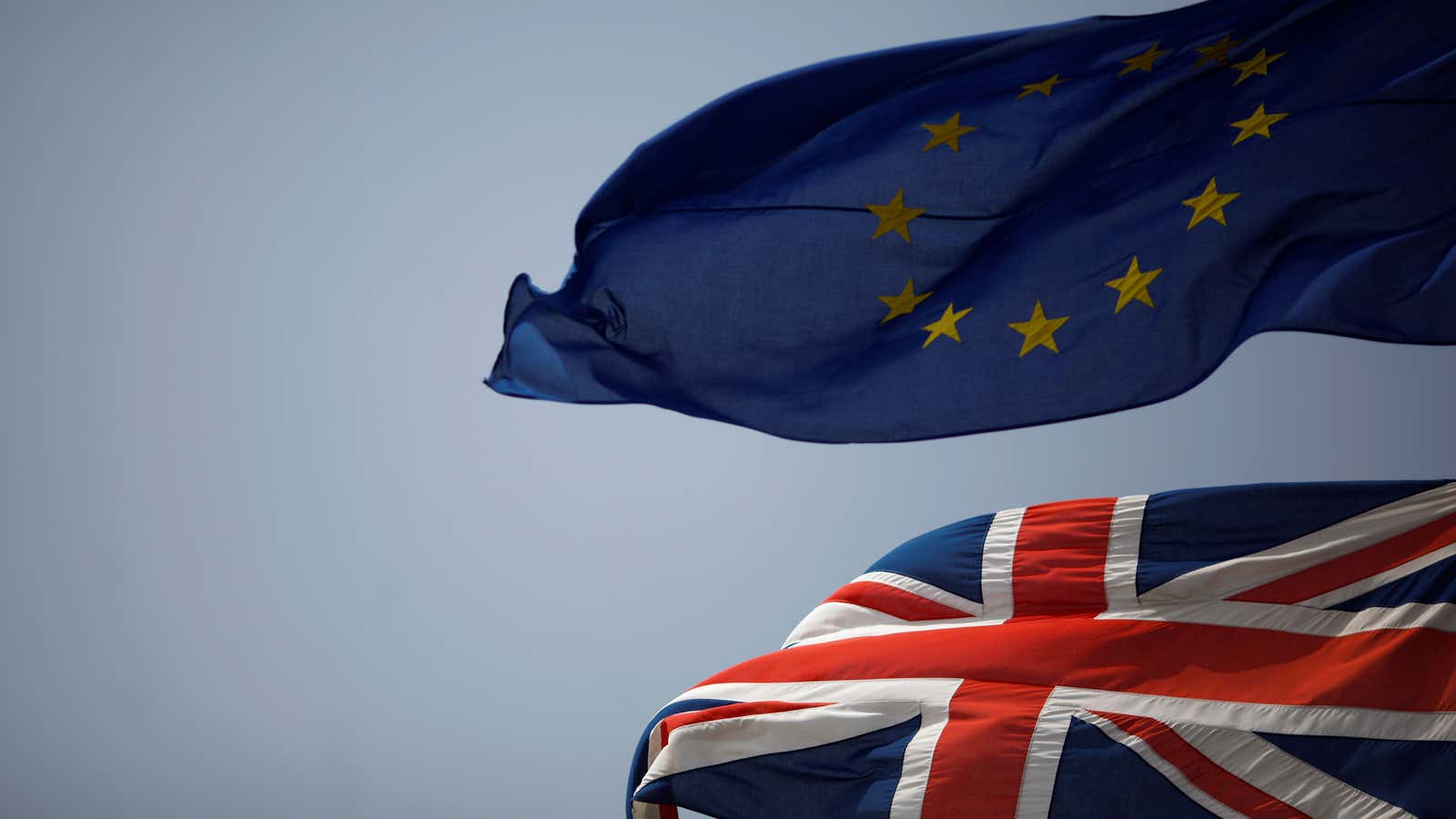British prime minster Theresa May is fed up with a bickering parliament. To put her opponents in their place, today she announced a surprise snap general election to be held on June 8.
The focal point of the bickering is Brexit. Britsh voters narrowly voted to leave the leave the EU last June, but the vote was only advisory. It took nine months for the prime minister to work through court battles and parliamentary votes to gain the legal powers necessary to officially begin the divorce process, which she did last month. In a sense, the snap election will become a second referendum on Brexit.
EU rules give the UK government two years to negotiate the terms on which it will leave the bloc. Opposition parties are causing trouble by saying that they will resist any Brexit deal not to their liking—especially a so-called “hard Brexit,” in which the UK crashes out of the EU in two years with no transitional arrangements or special deals at all. In recent weeks, some Conservative bigwigs have suggested that a hard Brexit would not be a big deal for the UK economy—”perfectly OK,” in the words of foreign secretary Boris Johnson.
If we go by the polls of voting intentions, May’s Conservative Party looks set to increase its majority in parliament—it currently holds 330 seats in the 650-member parliament, and poll projections imply that it could gain 50 more in the upcoming vote. That, in theory, would give May a more solid base from which to steer Brexit negotiations in the direction she wants.
In reality, nothing is certain in today’s volatile political environment. This is where the main opposition parties stand on Brexit, and how they could thwart May’s plans as the negotiations with Brussels begin in earnest.
Labour Party: Labour leader Jeremy Corbyn has not established a clear position on Brexit, aside from that the center-left party is opposed to a hard Brexit. Current polls suggest that Labour is likely to lose many seats in the upcoming vote (down to around 180, from 229 today), so it is on the defensive. Going into the election trailing the Conservatives by some 20 points in the projected popular vote, the biggest impact Labour will have is if it loses fewer seats than expected, suggesting that its stance on a softer Brexit deal resonates with voters.
Liberal Democrats: The centrist Liberal Democrats suffered a huge defeat in the 2015 election, ending up with only eight seats, down from 57 after the 2010 vote. It is now betting that a stringent anti-Brexit message will give it new momentum. Tim Farron’s party is selling itself as the only party that can stop Brexit, not just soften it. The party said it gained 1,000 new members in the hour after the snap election was announced. Although the Lib Dems are unlikely to reverse Brexit, a big gain in seats could make May think twice about taking a harsh stance on separation talks with the EU.
Scottish Nationalist Party: Following the failed 2014 independence referendum in Scotland, the SNP won a huge majority of parliamentary seats in the 2015 general election, almost immediately rekindling a push for independence from the UK. After a large majority of Scots voted against Brexit last year, party leader Nicola Sturgeon has used opposition to leaving the EU to bolster her case for another independence referendum. With 54 of Scotland’s 59 parliamentary seats, the SNP is already a major force—increasing its share of the popular vote will send an even stronger message that any Brexit misstep by May could lead to a break-up of the UK.
UK Independence Party: The far-right, anti-EU party lost its only MP last month, when Douglas Carswell quit the party and became an independent. In a way, UKIP achieved its ultimate goal with the Brexit vote—what else does it stand for besides quitting the EU? If voters deliver a seat or two to the party, it suggests that UKIP isn’t a spent force, and a constituency exists in favor of a hard Brexit, which will put pressure on May from the right.
